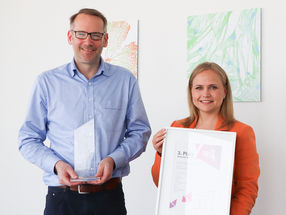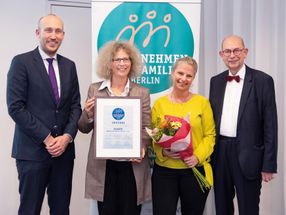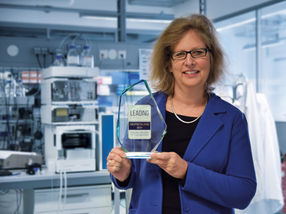International PhD Program in Infection Biology starts at GBF
The EU "Miditrain" Program supports the elite education of young researchers
Advertisement
Twelve highly qualified young researchers from around the world will soon get the opportunity to advance their skills in Braunschweig. Beginning this fall, the German Research Centre for biotechnology (GBF) will be coordinating the special European Union Marie Curie PhD program, MIDITRAIN. State-of-the art advanced training in molecular infection biology will be carried out together with the Hanover School of medicine (MHH). Successful students will receive a PhD from the MHH. The EU supports MIDITRAIN with EUR 2 million by way of its Marie Curie Action program which is specially designed to increase training, mobility and career development opportunities for young and gifted researchers. The GBF MIDITRAIN application was selected for funding along with 40 other projects out of a list of more than 700 competing proposals.
MIDITRAIN doctoral candidates are expected to possess above-average qualifications and an extra portion of zeal. Besides training in the laboratory and work on their Ph.D. thesis, they are expected to participate in a specially designed teaching curriculum with numerous lectures at the MHH and GBF, mini-symposia, summer schools and weekend retreats on selected subjects. In addition, the GBF offers a broad spectrum of scientific expertise and hands-on practice in its various research laboratories. Furthermore, MIDITRAIN participants will learn about the important business and patent aspects of scientific research, important skills for tomorrow's scientists. All teaching activities and instructions will be in English.
Training will focus on the molecular interaction between pathogens and human cells. Special attention will, among other things, be given to the study of model organisms, an area of research in which the GBF has earned an international reputation during the last few decades. For example, the students will learn about Streptococcus pyogenes, a bacterial pathogen that can cause severe rheumatic heart disease. MIDITRAIN candidates will be asked to study in depth what kind of molecular weapons pathogens use against us, how our immune system responds and to what extent the threat can be combated with vaccines or medication. "Epidemics such as AIDS or SARS keep flaring up," explains Dr. Hansjörg Hauser, MIDITRAIN program coordinator, "and we notice daily the alarming tendency of pathogens to grow increasingly immune to our drug treatments."
"This shows," Dr. Hauser goes on to say, "how crucial it is to have competent pathogen research. However, research methods and our knowledge of the molecular basics of infections have increasingly become so complex that a usual PhD degree program is no longer sufficient to teach the necessary expertise which is needed to fight infectious diseases."
Candidates interested in the MIDITRAIN program require the appropriate qualifications in one or more of the following fields: biology, chemistry, medicine, physics or biochemistry. 70 per cent of all MIDITRAIN doctoral candidates will be selected from EU member countries. The remaining 30 per cent will be chosen from overseas applicants. The cooperation with the MHH which awards the internationally recognized Ph.D. upon completion of the program is also a logical consequence of MIDITRAIN. "We already work closely with the MHH Centre for Infection Biology and the School of Veterinary Medicine in Hanover," emphasizes GBF researcher Dr. Siegfried Weiss. "Our research departments jointly offer specialized know-how on infection research to young scientists."














































